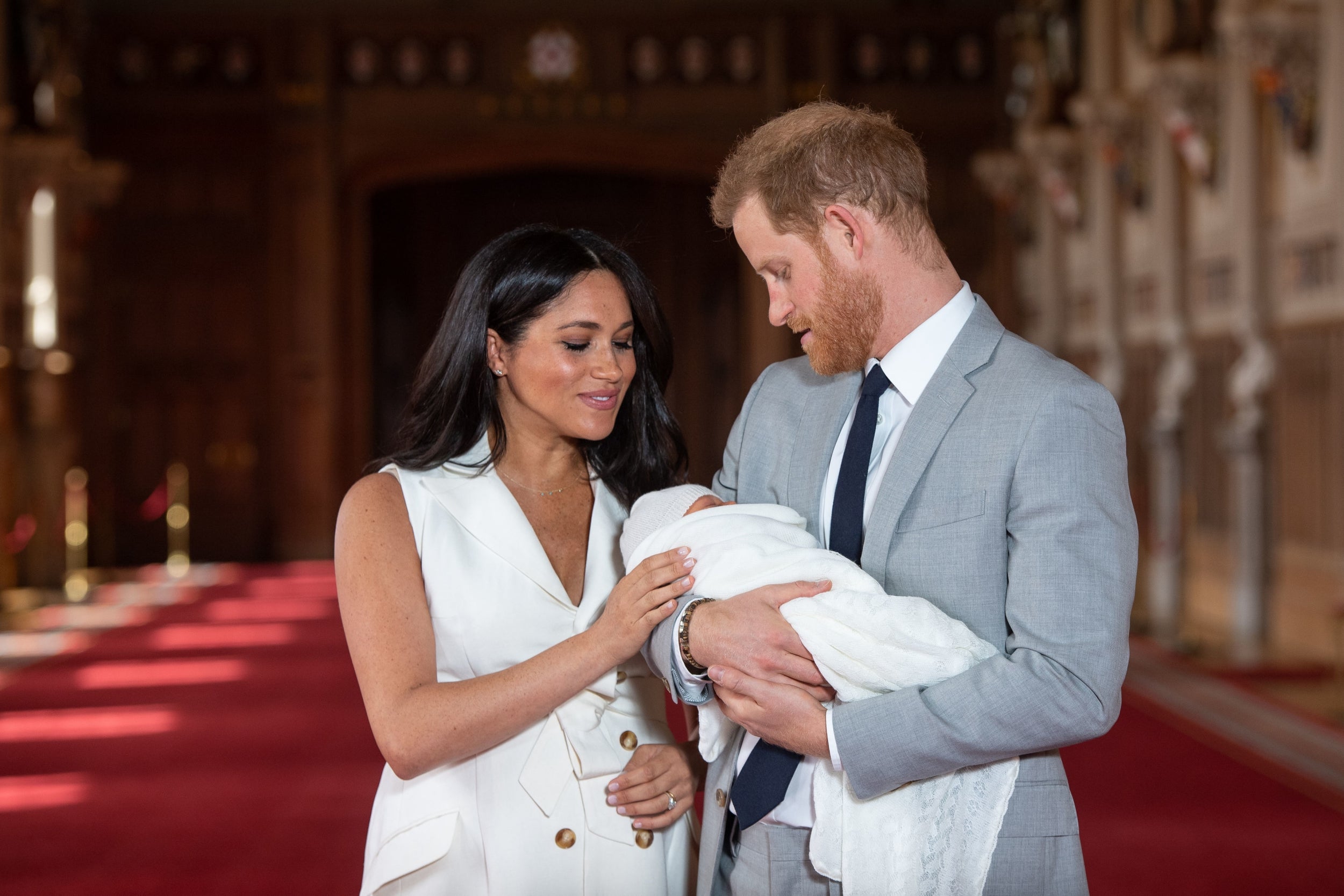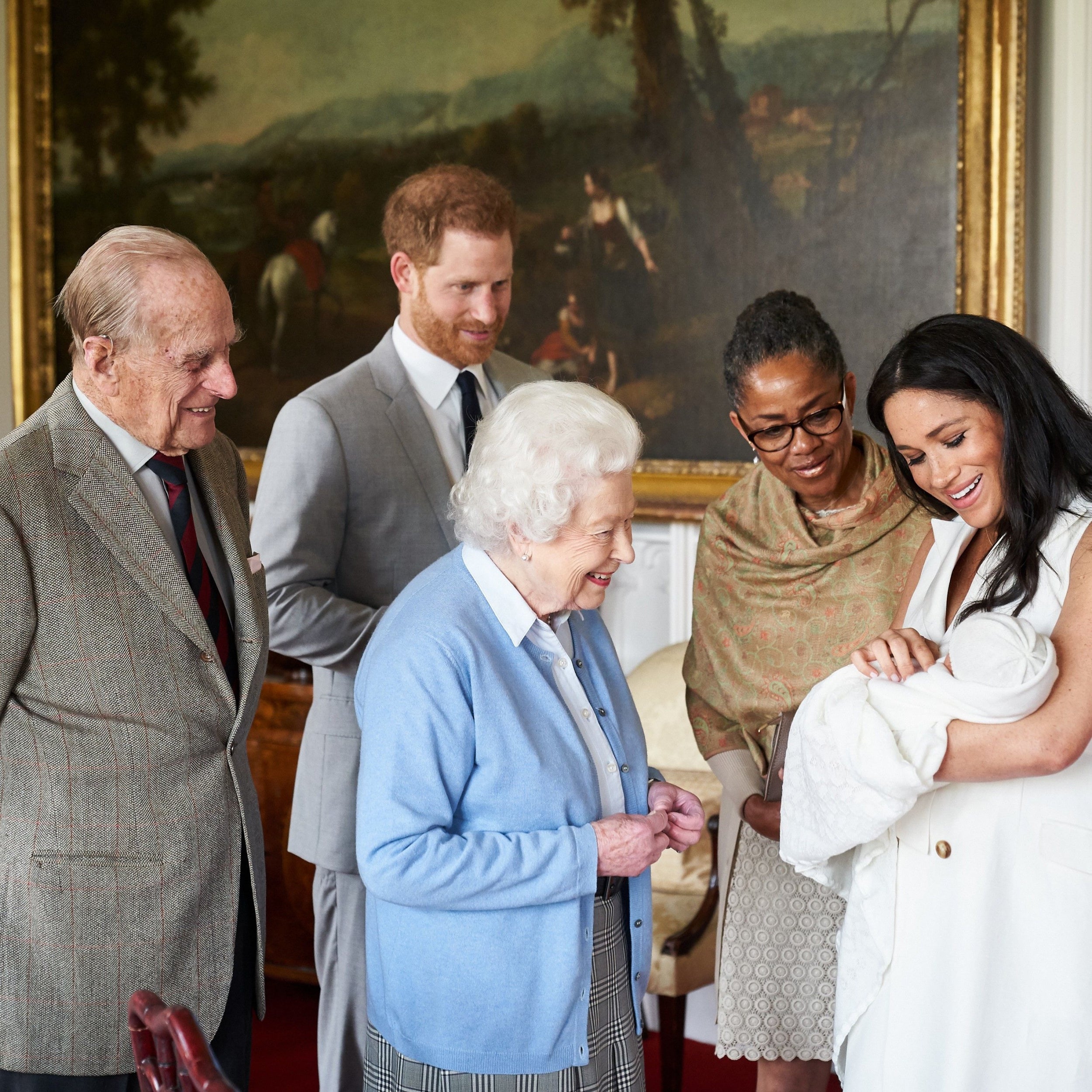Are Prince Harry and Meghan Markle breaking rules by keeping Archie’s godparents private?
‘You’re most likely dealing with a royal peculiar which adds another level of complexity’

Your support helps us to tell the story
From reproductive rights to climate change to Big Tech, The Independent is on the ground when the story is developing. Whether it's investigating the financials of Elon Musk's pro-Trump PAC or producing our latest documentary, 'The A Word', which shines a light on the American women fighting for reproductive rights, we know how important it is to parse out the facts from the messaging.
At such a critical moment in US history, we need reporters on the ground. Your donation allows us to keep sending journalists to speak to both sides of the story.
The Independent is trusted by Americans across the entire political spectrum. And unlike many other quality news outlets, we choose not to lock Americans out of our reporting and analysis with paywalls. We believe quality journalism should be available to everyone, paid for by those who can afford it.
Your support makes all the difference.The Duke and Duchess of Sussex’s decision to keep the identities of their son’s godparents private may be in breach of a legal requirement, according to Church of England law.
On Wednesday, a statement released by Buckingham Palace regarding the upcoming christening of Archie Harrison Mountbatten-Windsor, confirmed that the christening is due to take place on Saturday 6 July in a small ceremony held in the Private Chapel at Windsor Castle.
"The godparents, in keeping with their wishes, will remain private," the statement read.
While it is possible that information relating to the child’s godparents might be made public in the future, under the Church of England’s Parochial Registers and Records Measure 1978, “a register book of public and private baptisms shall be provided for every parish”.
A spokesperson for the Church of England clarified to The Independent: “Under the Parochial Registers and Records Measure 1978 all baptisms must be registered and the record made is normally publicly available for searches and for the making of certified copies of entries."
Although, they add that this is not always the case for the royal family.
"The register to be used in this case is held privately by the royal household on behalf of the Crown and we understand that it has never complied with the usual requirement," the spokesperson stated.
As Queen Elizabeth II is the Supreme Governor of the Church of England, it is likely that the Private Chapel is a royal peculiar – a church that belongs directly to the monarch and not to any diocese, so it does not come under the jurisdiction of a bishop. This means the general rules of the Church of England don't apply.
As a result, it would mean the royal family would be able to keep details of the christening private.
According to Ian Blaney, lawyer at Lee Bolton Monier-Williams and registrar to the Bishop of Lincoln, the question as to whether Prince Harry and Meghan are in breach of Church of England law is “not as straight forward as one might as expect”.
“You’re most likely dealing with a royal peculiar which adds another level of complexity and nuance.
“The christening might be taking place in what is known as an extra-parochial place (outside any ecclesiastical or civil parish) it’s important to remember that St George’s Chapel is a private place of worship for members of the royal family and residents on the estate.”
Speaking about the royal couple’s decision to keep the godparents’ identities private, royal author and photographer Ian Lloyd tells The Independent: “When they issued the statement about not revealing the names of the godparents ahead of the christening, I knew it would be a bone of contention as the public will want to know.
“The royal family have announced godparents for centuries.

“The only ones godparent names we haven’t found out are the grandchildren of Princess Anne. They were never made public because her grandchildren are not considered members of the royal family."
Princess Anne chose not to have titles for her children, Zara and Peter, when they were born in 1981 and 1977 respectively. As a result, Anne’s direct successors aren’t required to undertake public duties nor partake in royal processions.
Lloyd thinks this is a lifestyle Prince Harry would like his son to have but is unlikely to impart as he is sixth in line to the throne. “When Charles becomes King, he will become the son of the king,” he says.
Lloyd adds that Prince Harry and Meghan’s decision not to reveal the names is “clumsy.
“It is similar to the situation on the day of Archie’s birth when they tried to keep the location of the birth quiet.
“It eventually came out that it was the Portland hospital. They should just say who the godparents are.”
Are Prince Harry and Meghan Markle breaking rules by keeping Archie’s godparents private?
Several Twitter users have praised the royal couple’s decision to keep the identities of Archie Harrison’s godparents private.
“I never got the impression this was about protecting Archie's privacy -- I think it's an attempt to protect the godparents from the intense media scrutiny that'll come along with it [sic],” one wrote.
On the subject of Mike and Zara Tindall’s children, Lena and Mia, another added; “Yes actually last year’s christening of Lena was a very private one. Both Lena’s and Mia’s godparents were not even mentioned as far as I know. That’s why it bothers me how the RR’s are reacting now with Baby Archie.”
The Independent has contacted Buckingham Palace for comment.
Join our commenting forum
Join thought-provoking conversations, follow other Independent readers and see their replies
Comments